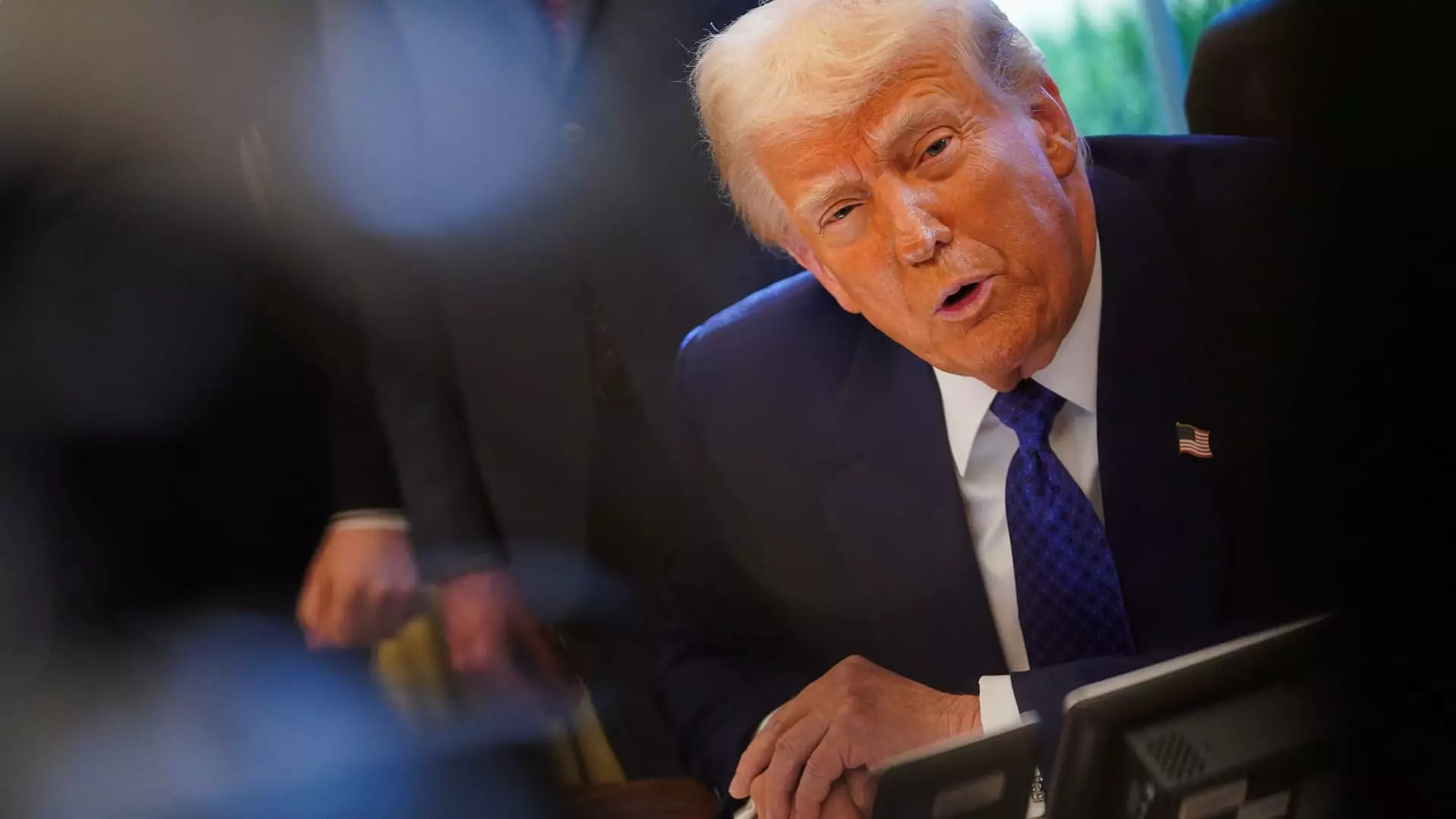The ongoing conflict in Ukraine, which escalated dramatically in February 2022, has attracted unprecedented international attention and support, particularly from the United States. As the conflict wears on, complexities in U.S.-Ukraine relations are emerging, particularly surrounding natural resources such as the country’s rare earth minerals. This resource-rich sector has recently become the focal point of negotiations and proposals that could fundamentally change the dynamics of the conflict and U.S. military involvement in the region.
According to several U.S. officials, the administration has proposed that Ukraine grant the United States a 50% stake in its rare earth minerals. This arrangement would theoretically serve as a mechanism for Ukraine to repay the U.S. for the significant financial and military support it has received since the onset of the war. Instead of a traditional monetary repayment, this ownership agreement may provide both strategic and economic advantages for Washington while relieving Kyiv of the immediate financial burden.
During a recent meeting in Kyiv, Treasury Secretary Scott Bessent presented this draft agreement to President Volodymyr Zelenskyy. However, the response from the Ukrainian leader was cautious. Zelenskyy declined to sign the document, indicating the need for further consultation and scrutiny. This hesitation could reflect a broader Ukrainian strategy that prioritizes sovereignty and control over national resources, complicating the prospect of a deal that would effectively transfer ownership to a foreign power.
Amid these discussions, Zelenskyy underscored Ukraine’s reliance on U.S. military support, stating that survival without it would be “very difficult.” This admission highlights a critical aspect of the relationship; while Ukraine seeks financial and military assistance from the United States, it must also navigate the intricacies of sovereignty and resource management. Zelenskyy’s comments at a recent security conference further emphasized the need for careful consideration and legal expertise in evaluating the implications of the proposed deal.
The Ukrainian embassy’s lack of immediate comment on the proposal reflects the uncertainty and sensitivity surrounding the matter. Zelenskyy’s intent to seek legal advice signals an understanding of the complexities involved in international agreements, particularly those that might significantly alter Ukraine’s control over its natural resources.
The Military Implications: Troop Deployment and Security Guarantees
Integral to the discussions of rare earth minerals is the implication of military support. There have been mixed signals regarding the potential deployment of U.S. troops in Ukraine as part of any security guarantees. While Defense Secretary Pete Hegseth has indicated that U.S. military presence will not be guaranteed, interviews with lawmakers suggest that it remains a possibility contingent on Russia’s willingness to negotiate effectively.
The prospect of U.S. troops in Ukraine raises profound questions about the future of American involvement in the conflict. The assertion from lawmakers that troop deployment is still “on the table” adds another layer of complexity to U.S.-Ukrainian relations, especially given President Trump’s past remarks about Ukraine’s substantial financial demands on the U.S. This dynamic reflects a broader skepticism about U.S. interests in the region and raises concerns about Ukraine becoming a pawn in larger geopolitical maneuvers.
The Broader Implications of Resource Management in Conflict
The discussions surrounding rare earth minerals cannot be viewed in isolation. They represent the intersection of economic reliance, military support, and geopolitical strategy. As the U.S. positions itself to gain access to these vital resources, questions arise about the ethical considerations of foreign ownership of national assets during a conflict. The options that Ukraine explores in this context will significantly impact its future sovereignty and economic stability.
Additionally, President Trump’s remarks about perceived excessive support to Ukraine outlined a tension within U.S. politics regarding the extent of assistance provided to foreign nations amidst domestic challenges. His characterization of Zelenskyy as a skilled negotiator serves to underscore the high stakes involved in these discussions, reflecting a not-so-subtle tension in the alliance.
The proposed rare earth mineral deal between the U.S. and Ukraine exemplifies the complex landscape of modern international relations, marked by the intertwining of military support, economic interests, and national sovereignty. As Ukraine navigates these treacherous waters, the decisions made in the coming months will not only impact the trajectory of the current conflict but also define the nature of U.S.-Ukrainian relations for years to come.


Leave a Reply